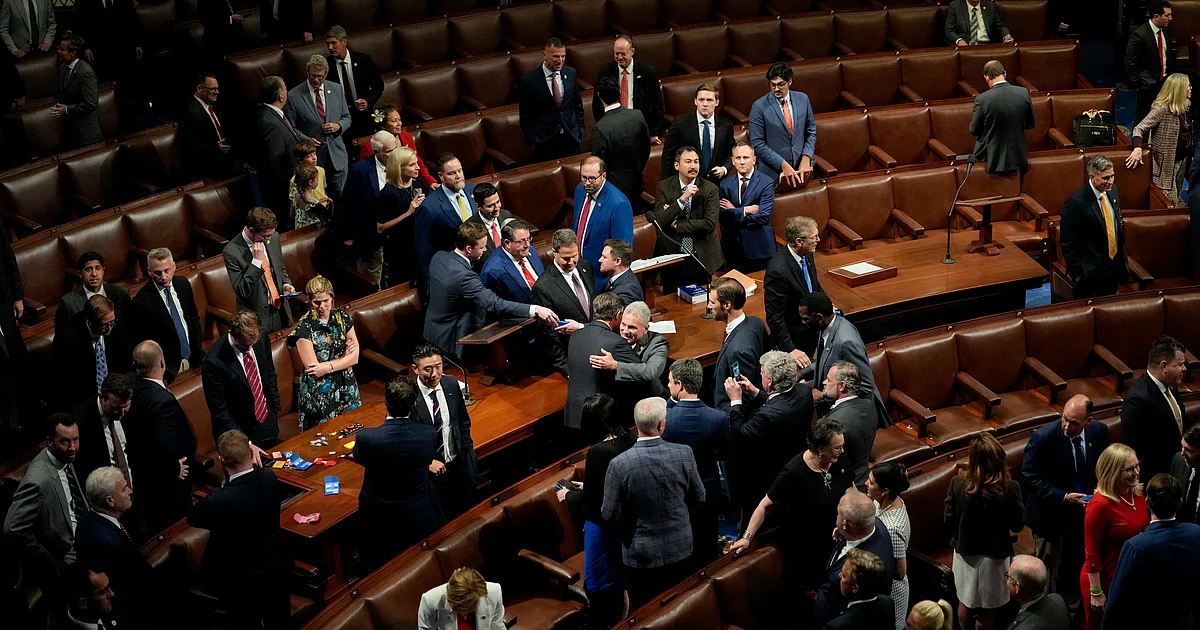President Donald Trump secured a sweeping shift in US domestic policy as the House passed a $3.4 trillion fiscal package that cuts taxes, curtails spending on safety-net programs and reversed much of Joe Biden’s efforts to move the country toward a clean-energy economy.
The 218-214 vote in the House Thursday sends the legislation to Trump, in time for a July 4 deadline he set. House leaders had to keep earlier procedural votes open for hours to convince a small band of holdouts to support the legislation.
The president leveraged his sway over the Republican party through threats of primary challenges, White House lobbying sessions and golf-course socializing to overcome resistance from both conservative hardliners concerned about the measure’s debt impact and swing-state GOP moderates worried about the scale of Medicaid cuts.
In the end, only two Republicans, Thomas Massie of Kentucky and Brian Fitzpatrick of Pennsylvania, joined with Democrats to oppose the bill.
Earlier in the week, Vice President JD Vance had to break a tie vote to get the massive tax and spending package through the Senate.
Trump’s victory followed an all-night vote wrangling session in the House, beset by numerous delays as the president railed on social media against Republican lawmakers who declined to quickly back the legislation.
House Republican Leader Steve Scalise credited Trump with breaking the logjam, impressing upon holdouts overnight that there would be no further changes to the bill.
“When the president is done negotiating, the game is up — it’s time to vote,” he said.
House Ways and Means Chairman Jason Smith extolled the bill for its populist appeal, calling it legislation for “people who don’t have lobbyists” in Washington.
“It’s about restoring sanity in a town that’s lost it, cutting waste and reining in reckless spending,” Smith said. “It demands that if you’re able to work, you should. It stops asking working families to foot the bill for Washington’s bad decisions.”
Democrats, in contrast, say the bill will strip health care for millions of people who depend on Medicaid to fund tax cuts for the wealthy.




